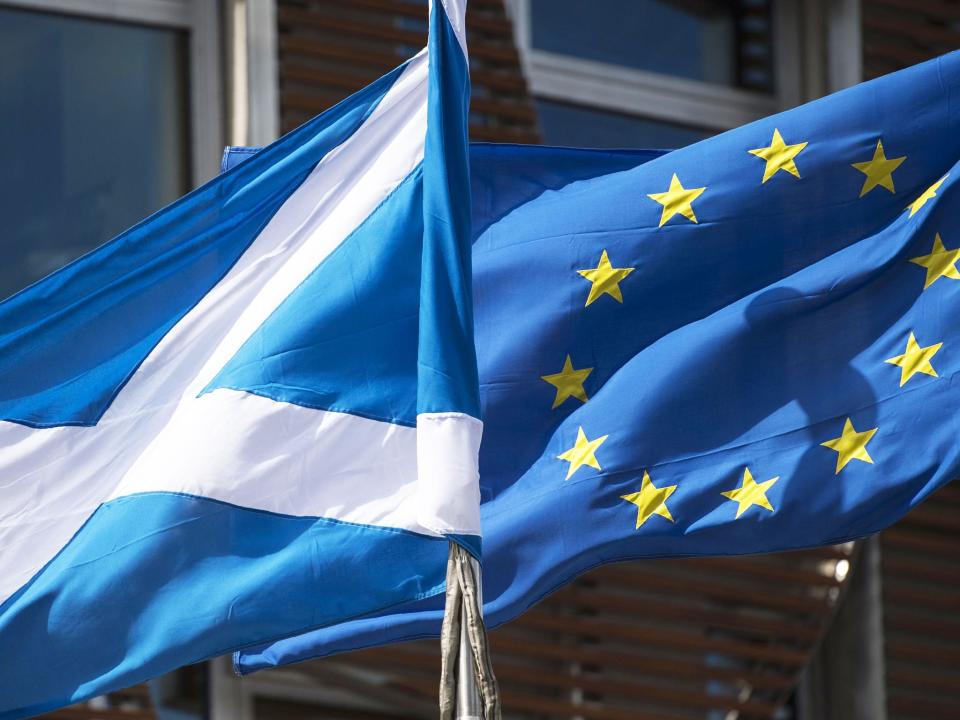EU says independent Scotland would not have automatic right to become new member

The EU has said an independent Scotland would have to join a queue of nations seeking membership of the bloc, after Nicola Sturgeon announced plans for a second independence referendum.
Wading into the debate on the Scottish Government’s plans for a second vote, a spokesman for the European Commission (EC) said Scotland would not be granted automatic access to the EU if it split from the rest of the UK.
At a briefing in Brussels, Margaritis Schinas said: "The Barroso doctrine, would that apply? Yes that would apply, obviously."
He was referencing former commission president Jose Manuel Barroso, who set out the legal view that if one part of an EU country became an independent state it would have to apply for EU membership.
Mr Schinas added: "The commission does not comment on issues that pertain to the internal legal and constitutional order of our member states."
It comes as Nato's secretary-general Jens Stoltenberg said an independent Scotland's membership of the military alliance was also "not automatic".
In a letter sent in 2012, Mr Barroso spelled out EC doctrine that “the separation of one part of a Member State or the creation of a new state would not be neutral as regards the EU Treaties”.
He continued: “A new independent state would, by the fact of its independence, become a third country with respect to the EU and the Treaties would no longer apply on its territory.”
In separate remarks made in 2014, Mr Barroso said it would be "extremely difficult, if not impossible" for an independent Scotland to get the necessary approval from the member states for it to join the EU.
He said: "We have seen Spain has been opposing even the recognition of Kosovo, for instance.
“So it [Scotland] is to some extent a similar case because it's a new country and so I believe it's going to be extremely difficult, if not impossible, a new member state coming out of one of our countries getting the agreement of the others."
Were Scotland to hold a second independence vote and then back splitting from the UK, the Government in Holyrood would have to apply for EU membership under Article 49 of the Treaty on European Union.
Several countries have expressed an interest in joining the EU, with Montenegro, Serbia, Bosnia, Herzegovina considered official candidate countries.
Jacqueline Minor, who until earlier this month was the European Commission’s official representative in the UK, previously warned that an independent Scotland would join a “list” of countries seeking membership.
However, she added that Scotland’s path may prove easier than other countries going through the application process as Scottish laws already comply with those required by the EU.
“It would presumably not be too difficult for Scotland compared to, say, Montenegro,” she said.
Earlier on Monday, Ms Sturgeon confirmed she is to seek the approval of MSPs at Holyrood next week to start negotiations with the UK Government on a deal that would allow a legally binding ballot to be held.
That could see a second independence vote take place as early as autumn 2018 - just four years on from when Scots voted by 55 per cent to 45 per cent to stay part of the United Kingdom.
It comes after nearly two-thirds (62 per cent) of Scots opted to stay in the European Union in June 2016, but the UK as a whole voted for Brexit.

 Yahoo News
Yahoo News 